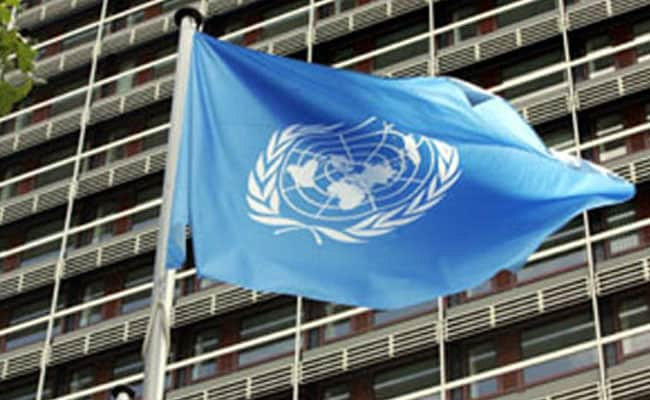
United Nations, United States:
The top United Nations aid official on Wednesday strongly criticized Saudi-led air strikes on the Yemen port of Hodeida, a lifeline for imports of food, medicine and fuel.
"These attacks are in clear contravention of international humanitarian law and are unacceptable," Stephen O'Brien told the Security Council.
The aid chief said he was "extremely concerned" that damage from the bombings "could have a severe impact on the entire country," worsening the humanitarian crisis.
Already 80 percent of Yemen's population of 26 million are in desperate need of aid, and nearly 1.5 million have been driven from their homes in the nearly five-month war.
Hodeida is controlled by the Iran-backed Shiite Huthi rebels who have been on the offensive for a year, driving President Abedrabbo Mansour Hadi into exile in Saudi Arabia.
In March, Saudi Arabia and its Arab partners launched an air war to restore Hadi's authority.
More than 4,300 people have died in the fighting including 400 children, according to UN figures.
Returning from a visit to Yemen, O'Brien said the "scale of human suffering is almost incomprehensible."
"I was shocked by what I saw."
O'Brien said the United Nations was scaling up its operations to bring relief and that more international aid workers would be based outside of the capital Sanaa and Hodeida.
The relief effort is hampered by a lack of funding, with only 18 percent of the $1.6 billion requested for Yemen raised so far, he said.
The United Nations is seeking to negotiate an end to the fighting, but several attempts at brokering a humanitarian pause to allow deliveries of vital supplies have failed.
O'Brien appealed for a political solution to end the violence that he stressed was "destroying the lives of millions of people" in Yemen.
Peace talks are critical "before it's too late. Otherwise there will be nothing left to fight for," he warned.
"These attacks are in clear contravention of international humanitarian law and are unacceptable," Stephen O'Brien told the Security Council.
The aid chief said he was "extremely concerned" that damage from the bombings "could have a severe impact on the entire country," worsening the humanitarian crisis.
Already 80 percent of Yemen's population of 26 million are in desperate need of aid, and nearly 1.5 million have been driven from their homes in the nearly five-month war.
Hodeida is controlled by the Iran-backed Shiite Huthi rebels who have been on the offensive for a year, driving President Abedrabbo Mansour Hadi into exile in Saudi Arabia.
In March, Saudi Arabia and its Arab partners launched an air war to restore Hadi's authority.
More than 4,300 people have died in the fighting including 400 children, according to UN figures.
Returning from a visit to Yemen, O'Brien said the "scale of human suffering is almost incomprehensible."
"I was shocked by what I saw."
O'Brien said the United Nations was scaling up its operations to bring relief and that more international aid workers would be based outside of the capital Sanaa and Hodeida.
The relief effort is hampered by a lack of funding, with only 18 percent of the $1.6 billion requested for Yemen raised so far, he said.
The United Nations is seeking to negotiate an end to the fighting, but several attempts at brokering a humanitarian pause to allow deliveries of vital supplies have failed.
O'Brien appealed for a political solution to end the violence that he stressed was "destroying the lives of millions of people" in Yemen.
Peace talks are critical "before it's too late. Otherwise there will be nothing left to fight for," he warned.
Track Latest News Live on NDTV.com and get news updates from India and around the world

